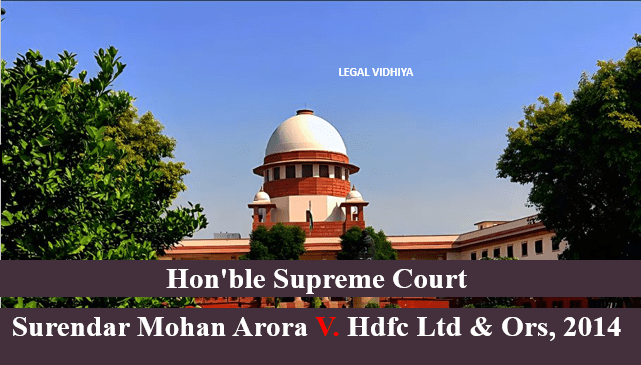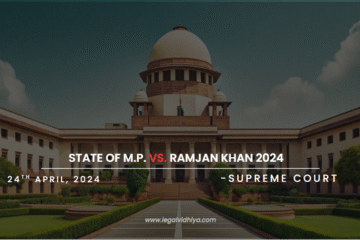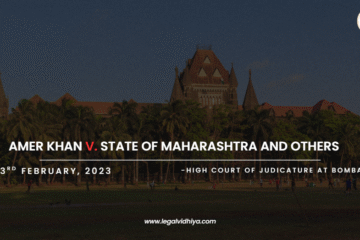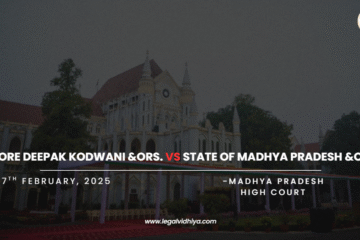
| CITATION | AIR 2014 SC 2871 |
| DATE OF JUDGEMENT | 25TH APRIL, 2014 |
| COURT | SUPREME COURT OF INDIA |
| APPELLANT | SURENDER MOHAN ARORA |
| RESPONDENT | HDFC LTD & ORS |
| BENCH | JUSTICE GYAN SUDHA MISHRA AND PINAKI CHANDRA GHOSE |
INTRODUCTION:
The case Surender Mohan Arora v. HDFC Ltd & ors is significant in upholding the legality of Regulation 15 of Consumer Protection Regulation, 2005. The judgement of the case reiterated the powers of the National Consumer Dispute Redressal Commission as conferred under section 30A of the Consumer Protection Act, 1986. The issue arose when the appellant’s review petition was dismissed by the National Commission without giving the opportunity of being heard. This case analysis provides a detailed view on the contentions of appellant who vehemently contest the Regulation 15 on ground that it is ultra vires to section 22 of the said act by dissecting the Supreme Court’s order.
FACTS OF THE CASE:
- The Appellant Surender Mohan Arora obtained a loan from HDFC bank. He was aggrieved when the bank levied penalty for Pre-payment of loan amount.
- As a result of indulging in unfair trade practice HDFC failed to provide a professional service to the appellant. Being displeased by the unethical behaviour of the respondent, Surender Mohan Arora filed a Complaint before the District Forum.
- The District Commission held in favour of the Appellant. Thereupon respondent appealed against the order to the State Commission which dismissed the appeal.
- The respondent filed a revision petition before The National Commission which on the basis of agreement between the parties set aside the orders of the District and State Commission.
- The Appellant being resentful of the above order by the National Commission filed a review petition before it however the petition was dismissed.
- Being dissatisfied and aggrieved by the order the appellant filed a Writ petition under Article 226 of The Constitution of India before The High Court by questioning the vires of the Regulation 15 of the Consumer Protection Regulation, 2005 which is framed under the Consumer Protection Act, 1986.
- The High Court dismissed the petition on ground that it is misconceived and devoid of the merit as it failed to make an application before the National Commission for oral hearing.
ISSUES RAISED:
- Whether Regulation 15 of the Consumer Protection Regulation, 2005 was ultra vires of section 22 of the said act?
- Whether the National Commission exceeded its jurisdiction beyond the powers vested in it under section 30A of the said act?
- Whether the National Commission have jurisdiction to issue notice restricting proxy counsel to appear before the court?
CONTENTIONS OF APPELANT:
ISSUE 1:
- The appellant contended that the object and reason behind enacting the Consumer Protection Act focused on protecting the rights and interest of the consumer which was the basic principle of amending section 22 of the said act.
- The appellant referred to section 22 which laid down the powers and procedure applicable to National Commission. It follows as (1) the provisions of section 12, 13, 14 and the rules made thereunder with respect to disposal of cases by District forum shall with any modification be applicable to the National Commission. (2) The National Commission have the power to review the order made by it, if the error is apparent on the face of record.
- The appellant quoted Regulation 15 which states it’s the discretion of the National Commission to dispose of the review application by circulation without oral arguments.
- The Appellant emphasised that section 22(2) seeks to promote the interest and rights of the consumers which include right to hear and further guarantee that the interest of the consumers will receive due consideration at appropriate forum.
- The Appellant submitted that the National Commission being a quasi-judicial body need to adhere to the Principles of Natural justice and pointed out that Regulation 15 is being redundant in achieving the objective of the said act by taking away the right to be heard and there is no adherence to Principles of Natural Justice.
- The Appellant in order to fortify his submissions relied on the decisions of this Court in State of Orissa v. Dr (Miss) Binapani Dei and Ors followed in Maneka Gandhi v. Union of India & Anr., Sahara India (Firm), Lucknow v. Commissioner of Income Tax, Central-I & Anr and Automotive Tyre Manufacturers Association v. Designated Authority and Ors in which the courts have emphasized on the right of being heard time and again even when an order is passed by an administrative authority and that written arguments cannot be a substitute for oral hearing.
- The Appellant had thus put forth all the above defectiveness of Regulation 15 thereby making it ultra vires to section 22 of the said act and insisted on striking down Regulation15.
ISSUE 2:
- The Appellant contended that the National Commission while enacting the Regulation have acted beyond the powers vested in it under section 30 of the said act as the right of making the oral arguments had been taken away, thereby the Regulation is inconsistent with the objectives of the said act.
- The Appellant asserted that by making oral arguments to be allowed by National Commission it has construed the act erroneously which have given the prerogative to the consumers and not to the National Commission.
- The Appellant emphasised that the Regulation lead to inequality as some consumers are given the opportunity of being heard in open Courts and others are deprived of their right at the discretion of the National Commission.
ISSUE 3:
- The Appellant contented that the issue of notice depriving the proxy counsel to appear before the court is bad in law and further it lacks jurisdiction.
- According to Appellant such a direction is illegal and arbitrary as it thwarts a qualified lawyer enrolled on the rolls of a State Bar Council from presenting his case before the National Commission.
- The Appellant further pointed out it is a violation of Article 19(1) (g) which guarantee fundamental right to practice.
- The Appellant highlighted section 30 of The Advocates Act, 1961 which states after being enrolled in state bar council, the advocate has the right to appear before any court or tribunal or any other authority and therefore it is curtailment of the right of Advocate.
JUDGEMENT:
The Supreme Court opined that section 22 streamlines the functioning of the consumer Redressal forums and aims to reduce the number of appeals to the Supreme Court from the orders of the National Commission. The power of review is not an inherent powers it is only conferred by the statutes to the National Commissions. The Apex Court held that it did not find any dispute in the regulation which is framed by virtue of powers conferred under section 30 of the said act. Hence the Regulation is in accordance with the law.
Further the Court did not find any mischief in framing the regulation and said that it cannot be ultra vires section 22 of the said act. There is no reason to believe that the National Commission by enacting Regulation 15 exceeded its jurisdiction or the power vested in it under Section 30A of the said Act.
The Court based on the order given by it in case of Sanjay Kumar v. The State of Bihar & Anr, 2014 which held the proxy counsel cannot be allowed to abuse or misuse the court process by false impression, have reiterated the same.
As it appears to the Court that the predominant aim of filing the appeal was to curtail the right of the National Commission and further finds no request has been made before the National Commission for hearing the arguments. The Supreme Court after examining the above circumstances have uphold and affirmed the order given by the High Court and dismissed the appeal.
ANALYSIS AND CONCLUSION:
The case Surender Mohan Arora v. HDFC Ltd & ors is a significant case which reaffirms the scope of powers vested with the National Commission i.e.to decide a review application to dispose of the case by circulation without oral arguments. The court held that dispute of consumer’s right to be heard is not violated by enacting the regulation as the National commission have acted within their powers. Moreover it is to be noted that a regulation can be made only with the approval of the central government, therefore while enacting the regulation the National commission have followed the procedures laid. Hence The Supreme court affirms the regulation is at par with the objectives and reason of the Consumer Protection Act, 1986. The case hold a pivotal role in establishing the intrinsic potentiality of the National Commission which needs to be publically known.
REFERENCE:
This Article is written by Mahalakshmi.K of School of Excellence in Law (SOEL), Intern at Legal Vidhiya.
Disclaimer: The materials provided herein are intended solely for informational purposes. Accessing or using the site or the materials does not establish an attorney-client relationship. The information presented on this site is not to be construed as legal or professional advice, and it should not be relied upon for such purposes or used as a substitute for advice from a licensed attorney in your state. Additionally, the viewpoint presented by the author is of a personal nature.




0 Comments